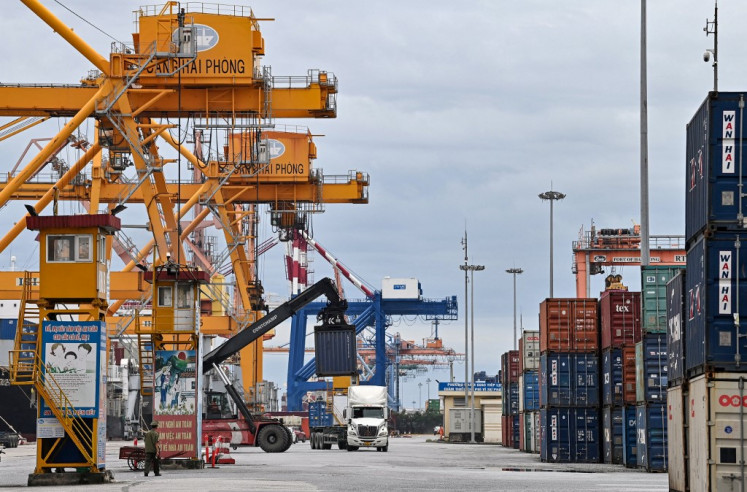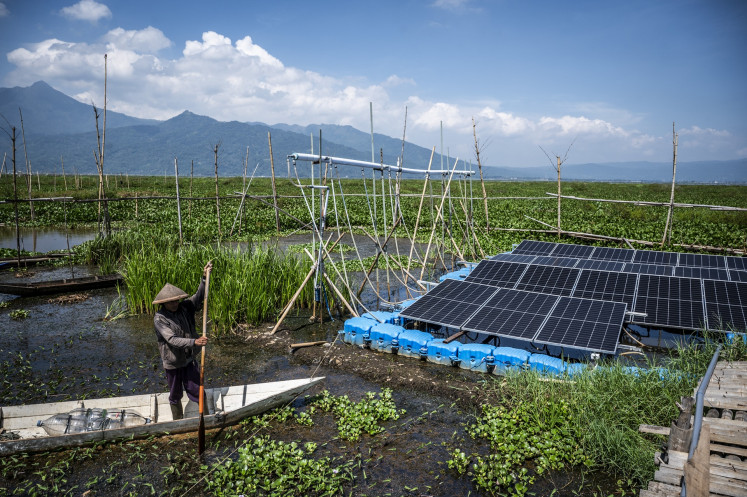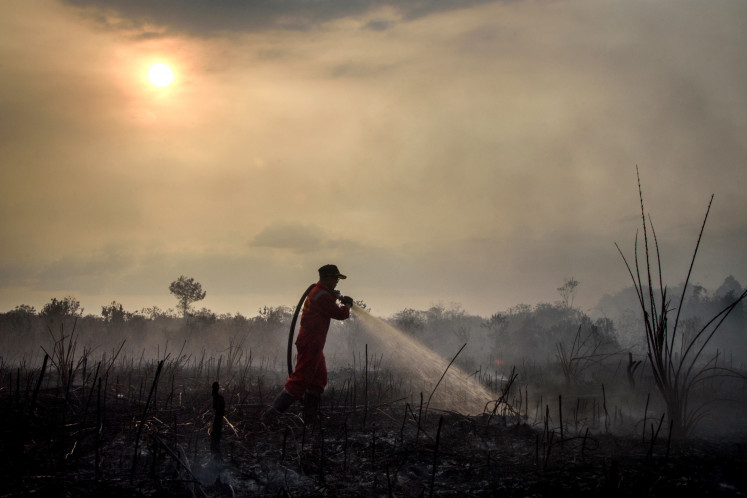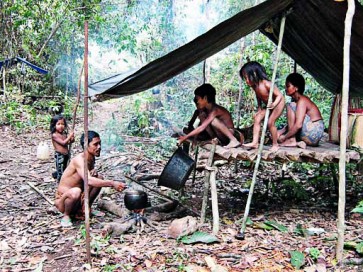Popular Reads
Top Results
Can't find what you're looking for?
View all search resultsPopular Reads
Top Results
Can't find what you're looking for?
View all search resultsCOMMENTARY: Who will benefit from Jokowi's land reform?
Indonesia has seen a long record of land conflicts and citizens deprived of the rights to their land in favor of the rise of the plantation and mining sectors.
Change text size
Gift Premium Articles
to Anyone
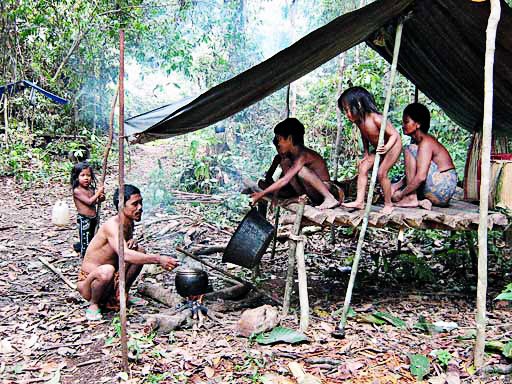 On the edge: A family of the Orang Rimba tribe lives in a flimsy hut deep in the jungle of Jambi. The Indigenous People’s Alliance of the Archipelago (AMAN) said indigenous people in Indonesia had often suffered discrimination and human rights violations by the government, especially on land disputes.
.
(thejakartapost.com/Iman D.Nugroho)
On the edge: A family of the Orang Rimba tribe lives in a flimsy hut deep in the jungle of Jambi. The Indigenous People’s Alliance of the Archipelago (AMAN) said indigenous people in Indonesia had often suffered discrimination and human rights violations by the government, especially on land disputes.
.
(thejakartapost.com/Iman D.Nugroho)
The government has made a bold move with its plan to grant people wider access to land under its agrarian reform.
More than 9 million hectares, comprising roughly 4.5 million hectares of degraded forest and 4.5 million ha of uncertified plots, will be owned by citizens under land objects for agrarian reform (TORA), while another 12.7 million ha will be managed by indigenous people.
The government has introduced the land reform as part of its equity policy, which aims to ensure equal access to land, infrastructure and basic services and reduce widening inequality.
While the plan may gain nods from development economists and proponents of a welfare state, a closer look at the program is necessary to avoid failures of past agrarian policies.
Indonesia has seen a long record of land conflicts and citizens deprived of the rights to their land in favor of the rise of the plantation and mining sectors.
As most land gained state forest status during Soeharto’s New Order, logging and mining exploitation became rampant during the authoritarian regime. The military, as virtual guardians of the state forests, together with exclusive concessions to businesses became the pillars of natural resource management. Those living inside and around the forests were excluded.
There was no distribution of wealth as taxes, forest product fees and charges amounted to only a small part of profits secured in the exploitation. And under the centralized system, the revenues went mostly to the central government in Java.




